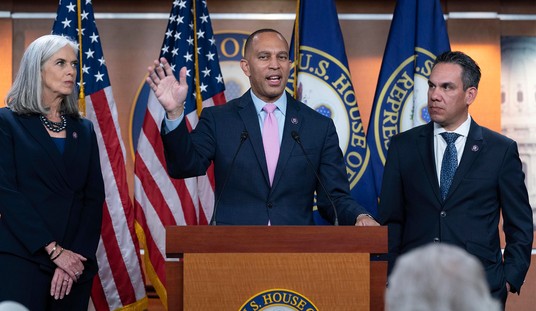The National Republican Senatorial Committee has a pretty well-defined, easy to understand mission: working to elect Republicans to the Senate. It is for this reason that there are often complaints among those who work on smaller or “insurgent” campaigns that the NRSC has taken sides in a primary fight. The feeling among such candidates, their staff, and their consultants is that the committee should allow Republican voters to choose their Republican nominee, and then the committee should help that nominee win their race and go to the Senate. Simple.
But sometimes the mission seems secondary to other NRSC goals and, in the case of 2016, perhaps to the careers prospects of those who work there. It’s not always a matter of taking sides in a primary. They can commit other errors. Take, for example, the cases of Roy Blunt and Richard Burr.
In 2016, both Richard Burr and Roy Blunt were up for reelection. Both won and are Senators for their respective states. But these are not victories because of the NRSC. Indeed, they can be said to be victories in spite of the NRSC. National-level strategists, as well as off the record sources from the committee, talked down both senators’ chances of winning their seats.
In North Carolina, Burr was in a dicey spot by most accounts. It was a “tight race” said the faces on TV and the sources cited in newspaper articles. Tight even, said the polls. But in the end, Burr easily won reelection with a majority and defeated Democrat Deborah Ross by over 5 points. Burr was a two term incumbent GOP Senator running against an outspoken pro-abortion Democrat who used to work for the ACLU.
But during the campaign there were many problems. The party felt Burr was being far too “hands off” about his campaign and they let that be known in the press. Moreover, they forced a restructuring on his campaign, putting a Communications Director in place who was paid out of the committee’s coordinated campaign.
With that kind of monetary investment, it almost seems absurd that they would leak “trash talk” to the press about Burr and his campaign, even if they felt their concerns about his campaign were well-founded.
In the case of Roy Blunt in Missouri, they also tried to force a restructuring. The NRSC wanted Andy Blunt, the campaign manager and son of the Senator, fired. They gave that information to CNN. NRSC Executive Director Ward Baker told Blunt quite frankly that he thought he was going to lose his election, and that he wanted Andy out. Like Burr, Blunt won his race. Without firing Andy.
Andy Blunt has a successful record running campaigns. He ran Matt Blunt’s in 2000, a win. He ran Matt Blunt’s in 2004 against Claire McCaskill, another win. He ran Roy Blunt’s in 2010 against Carnahan. Another win. He’s also run several state-level campaigns successfully. Perhaps there is a distaste for the hiring of one’s family to run a campaign, but it has worked out very well in Andy’s case. Demanding and pressuring for the campaign manager’s ouster (as opposed to actively supporting the campaign) seems objectively like a bad decision, and in hindsight was clearly the wrong one. Blunt won despite the NRSC’s attempted restructuring, not because of it.
We know now in hindsight that the polling in 2016 was out of whack. So fears of losing a majority based on shaky polling are not unreasonable. But undermining candidates to the press, and attempted firings of staff who were, on paper especially, only assets to the campaign, seem counter-productive the the NRSC’s mission. (Unless that mission was currying favor.)
This year, the committee was pretty decent. They avoided many of the primary sins for which they’ve often been criticized by campaigns and especially by grassroots activists. But message discipline was sorely lacking in these two races and, given the outcomes, it was a totally unnecessary engendering of ill will.
It’s simple, NRSC. Support good candidates during their elections. That’s all.













Join the conversation as a VIP Member